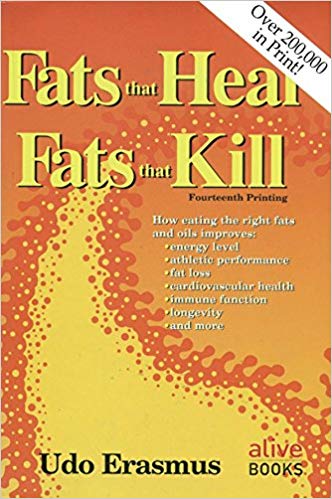By Ben Fuchs | Pharmacist Ben
Get ready for another epidemic! According an article posted on cnn.com the annual “September Asthma Epidemic” (their words, not mine) is coming, although the only evidence they cite are clinical studies that have shown the greatest number of hospitalization due to asthmatic attack are highest 17 days after labor day. Whether an epidemic is on the way or not may be up to conjecture, but what is not debatable is the well-documented fact that asthma is a big and getting bigger problem. From 2001 to 2010, the asthma incidence increased almost 15 percent. By 2009, asthma accounted for nearly 3,400 deaths, nearly 480,000 hospitalizations, 1.9 million emergency department visits, and 8.9 million physician office visits.

By BruceBlaus (Own work), via Wikimedia Commons
Asthma, which affects almost 13 percent of adults, and over 29 million Americans at least once in their lives is best thought as an inflammatory condition of the airways. The airways are the passageways where air, or more specifically oxygen, gets transferred into the blood. The net effect is an obstruction or a blockade of oxygen which causes the wheezing and shortness of breath, and a sense of suffocation that occurs with a asthmatic attack. The key word in the above description is inflammatory, which alludes to the microscopic blockages where inhaled oxygen from the air we breathe is transferred to the blood.
And inflammation? Well, that’s always the manifestation of a jacked-up immune system. ALWAYS! I can think of no more fundamental concept in all of physical health. Inflammation is the way a defensive (immune) response shows up; a defensive response to some kind of stressor. And a defensive/stress response means something is getting into the body or something is happening to the body that the body perceives as an attack. In order for a DEFENES-ive response to be initiated there has to be a preceding OFFENSE-ive agent; And the main routes for an offensive agent to get into the body for a defensive response to be triggered, such as those observed with an ordinary asthmatic attack, are typically through the lungs (they are breathed in) or the digestive system (they are eaten). In the case of exercise induced asthma the stress results from the need to heat and humidify large amounts of air that enter into the lungs during exercise.
So what’s an asthmatic to do? Though the medical treatments of choice are inhalers, which are usually some kind of steroid type drug or a nervous system agent that dumbs down respiratory responsiveness or suppresses immunity. Pharmacological intervention is not without toxicity or side effects. The questions for asthmatics are: Do you really want to suppress the immune system that is so essential for protecting the body from the environment assaults, animate and inanimate Or, do you really want to dial down your nervous system that distributes the electrical energy that runs our bodies and brains?
In my opinion the best way to deal with asthma is to take a healthy, natural and multi-pronged approach. In the case of asthmatic attacks that are directly caused by something you’re eating, obviously you want to eliminate those kinds of foods. Dairy and grains are likely suspects. Sometimes legumes, including peanuts and soy, can be problematic. Even vegetables can induce an asthmatic attack in those who are predisposed. Be especially careful of the nightshades which include tomatoes, potatoes, eggplants and peppers.
In addition to avoiding foods that can trigger asthmatic attacks it’s important to reduce the load on the immune system, from non-triggering substances that simply burden the immune system without directly causing respiratory symptoms. If there are predisposing immune loads(mostly problem foods), these can contribute to the signs of inhalation asthma albeit without directly causing asthmatic symptomology. Even if it doesn’t seem like there is a connection between foods and asthmatic symptoms, foods can still PREDISPOSE even if they don’t immediately CAUSE an asthmatic attack. This is kind of tricky, because the connection between predisposing factors that weaken the immune system or burden the immune AND immediate triggers might not be obvious. You might think your asthmatic symptoms are the result of exposure to pollen, not realizing that the pollen is merely the trigger and the cause is really an overburdened immune system that is struggling to keep up with food allergens or toxins that are getting into the body on a regular basis, even if they are not causing immediate symptoms or problems. I call it the “straw-that-breaks-the-camel’s-back” effect where the inhaled substance is not the actual cause but merely the “straw-that-breaks-the-camel’s-back”. What’s worse, if you have an immune system that is burning through nutrients or if you are malnourished, either because you’re not absorbing or nor getting nutrients this undernutriation can also be a contributing factor.
Look for other indicators of immune activation. Skin problems, rashes, frequent colds, autoimmune disease are all signs. If you have any of these symptoms associate with them foods and eliminate those foods. And if you don’t have any of those symptoms, then look for digestive difficulties. And really look. Bowel movement issues and gas are especially good clues. So is heart burn. If you have any of these symptoms connect them to food and eliminate those foods. This will decrease the burden on the immune system and reduce the “straw-that-breaks-the camel’s-back-effect”.
And don’t forget to add in the digestive support nutrients including probiotics, digestive enzymes with food, glutamine powder, juices of aloe vera and noni. There are also important nutrients for the lungs and blood and immune system. Magnesium is an asthmatic’s best nutritional friend. It can help relax constricted blood vessels and strengthen the immune system too; use 1000-2000mg of the glycinate form. Vitamin C is especially important for lung health. I’d be using 100-5000 mg a day. Vitamin E is also an important respiratory nutrient. Use the tocotrienol form, 400 IU daily, for best results. Vitamin E’s cousin, CoQ10 can be helpful, use the oil soluble gel-caps and take 100mg a day. And don’t forget about Vitamin D which can provide respiratory health benefits and beef up a burdened immune system. Sun exposure is always the best way to get your Vitamin D, but if you prefer to go the supplement route, take 5,000 to 10,000 IU. And always balance out your Vitamin D supplementation with Vitamin A, which can provide its own respiratory health benefits. I’d be taking 20,000 IU of Vitamin A at least 4 or 5 days a week. It’s stored in liver so missing a day or two isn’t going to hurt. Don’t forget your EFAs especially Omega-3 s from fish oil which can have wonderfully beneficial benefits for addressing the inflammation associated with asthma. Finally, in addition to supporting digestive health, probiotics can strengthen the immune system and keep it from being so sensitive and jumpy. Take 80 billion units a day and look for products that contain multiple strains of good bacteria.










